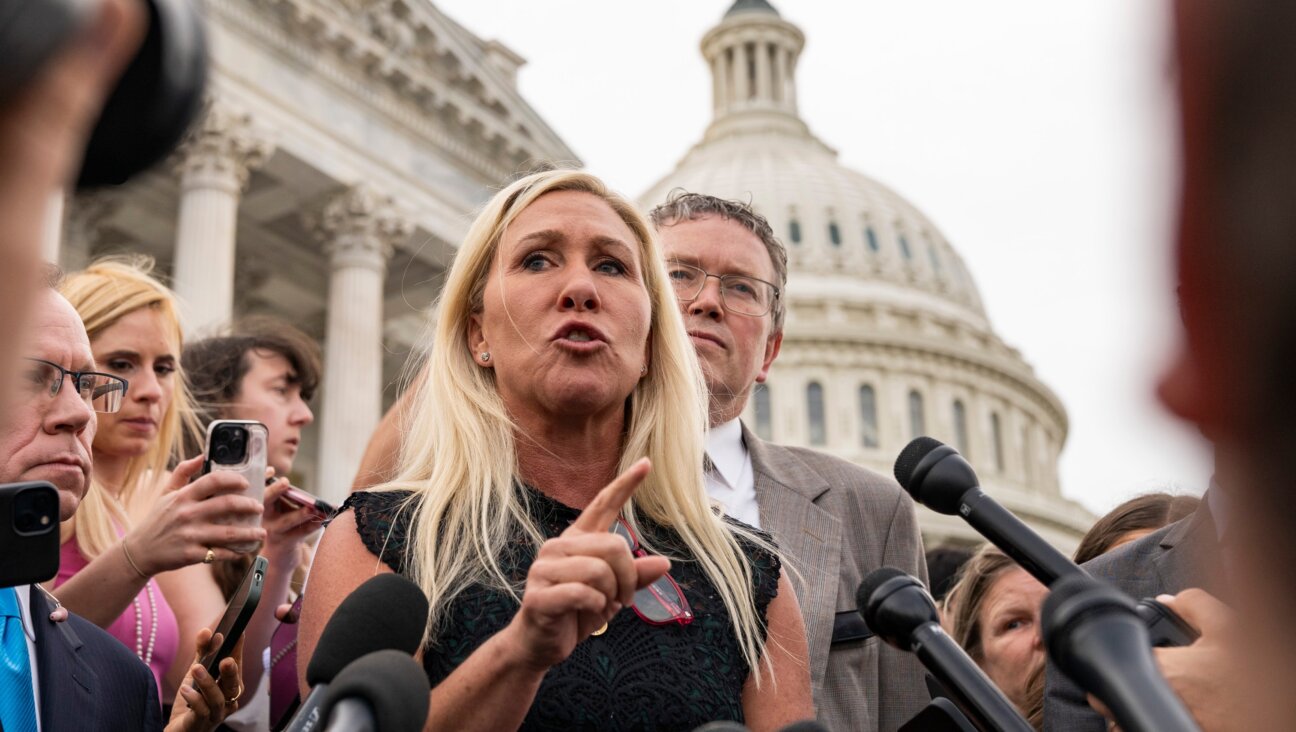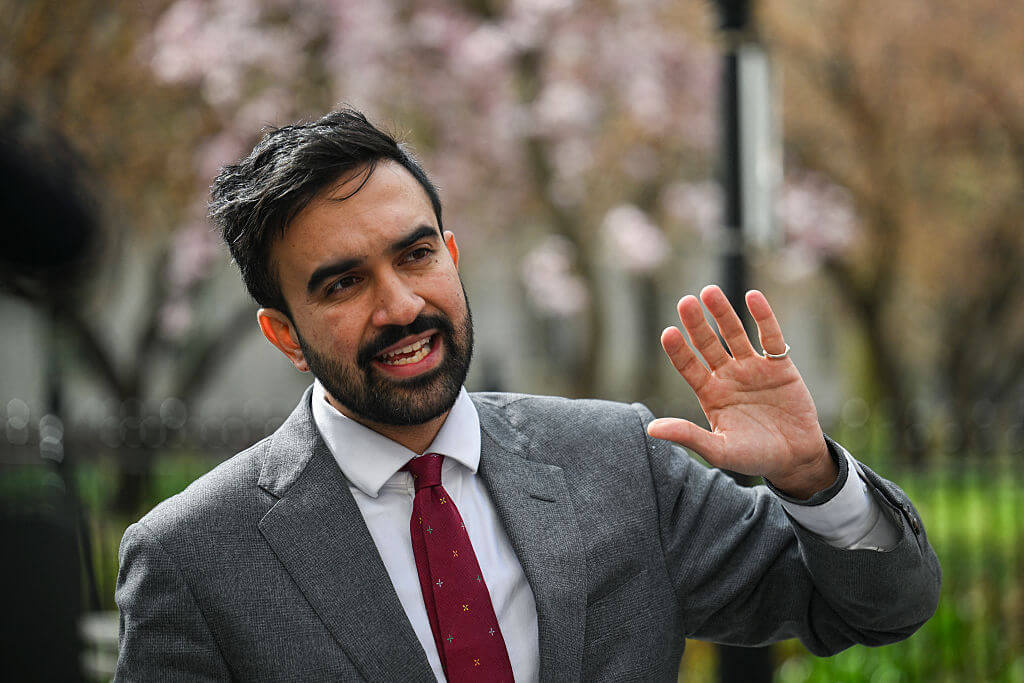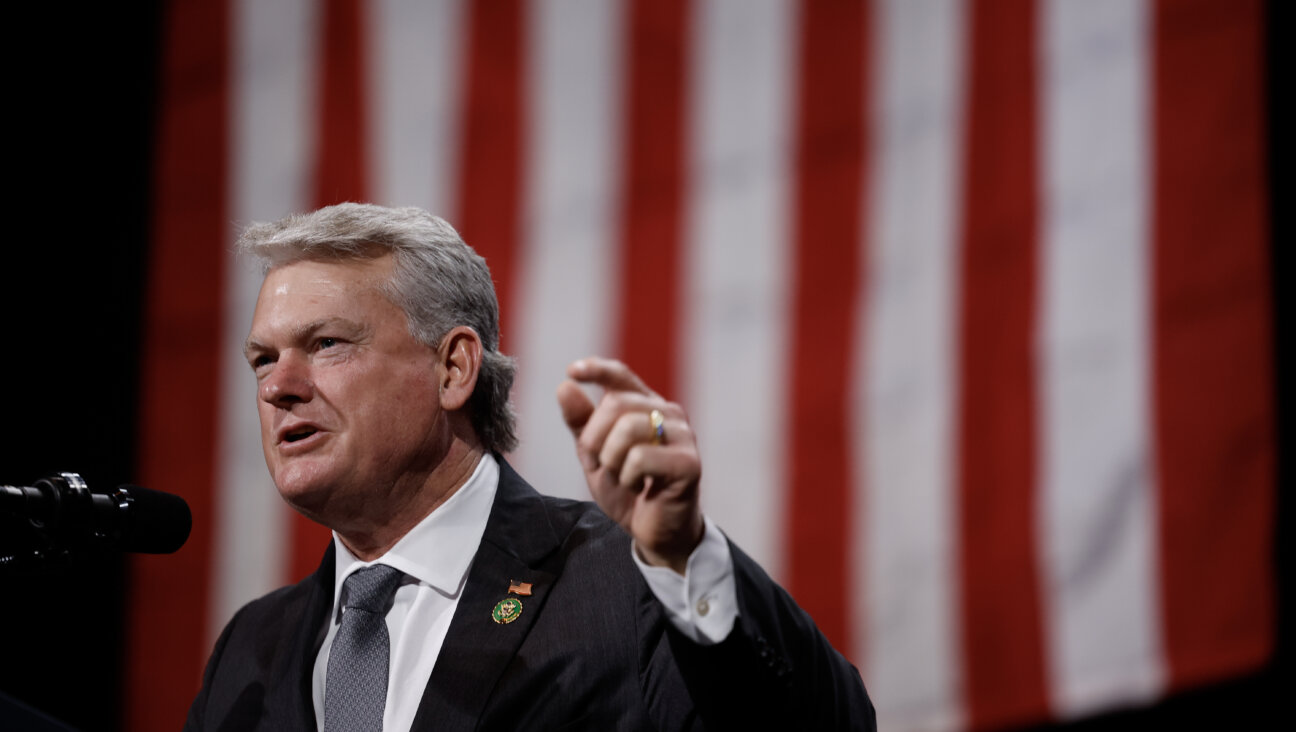Could Hillary Clinton Fix Our Broken Politics?

Hillary Clinton shakes hands with people on February 1, 2013 in Washington, DC. Image by Getty Images
On his way to the Republican party nomination, Donald Trump routinely denigrated his opponents. Trump called his fellow frontrunners “Little Marco” and “Lyin’ Ted” and mocked Carly Fiorina’s appearance: “Look at that face! Would anyone vote for that?,” he told Rolling Stone magazine. Can you imagine that, the face of our next president?!” Now Trump is attempting to undermine the Democratic nominee Hillary Clinton by calling her “Crooked Hillary.”
Trump is hardly the first politician to use insults and accusations to win an election. Some trace the tactics of personal attacks back to Newt Gingrich. When he was campaigning to be the Republican Presidential nominee in 2012, the New York Times White House correspondent Sheryl Gay Stolberg described the combative approach he’d perfected in the 1990s.
“Mr. Gingrich, Democrats and Republicans here agree, emerged as one of Washington’s most aggressive practitioners of slash-and-burn politics; many fault him for erasing whatever civility once existed in the capital.”
The hostile language Gingrich used against political opponents was codified in a 1990 memo which encouraged Republicans to “speak like Newt” and use words like “radical,” “pathetic,” “sick” and “traitors” when describing Democrats. He most famously used his tactics against Bill Clinton when he was one of the leading advocates for impeachment. At the time Gingrich attacked Democrats for destroying family values (though he later admitted to having extramarital affairs with two successive wives during those years.)
Whether or not it was Gingrich who spearheaded the descent, the political discourse in Washington has never recovered from those contentious days. The government shutdowns in 1995, 1996 and the most recent shutdown in 2013 are a result of the inability of the two parties to reach a consensus. In general, the invectives across party lines has been a constant in the last twenty years of U.S. politics.
One of President Obama’s regrets from his two terms in office — according to his own account — is his failure to repair the political divisions between Democrats and Republicans.
“It’s one of the few regrets of my presidency — that the rancor and suspicion between the parties has gotten worse instead of better,” he said in his final State of the Union address. “There’s no doubt a president with the gifts of Lincoln or Roosevelt might have better bridged the divide, and I guarantee I’ll keep trying to be better so long as I hold this office.”
Though he professes to admiring Lincoln it’s doubtful that Trump, a famously divisive candidate, can reverse the gridlock between the parties.
And what about Hillary Clinton?
Clinton makes the claim that she’ll take a bipartisan approach if she becomes the 45th President. She bolsters this claim by citing her relationships with lawmakers across party lines.
It’s not just empty bluster. Lindsey Graham — once a prominent and vocal foe of Bill Clinton while Graham was in the House of Representatives — praised Hillary Clinton on multiple occasions after the two worked together in the Senate.
“In the Senate, a small body of big egos, Senator Clinton, 58, is sought out by her colleagues to form legislative partnerships,” Graham wrote in Time Magazine’s “100 Most Influential People” issue. “Her high-profile status, combined with a reputation as a smart, prepared, serious Senator, creates real influence. In a short time, this blue-state Senator with a blue-state perspective has managed to build unusual political alliances on a variety of issues with Republicans Bill Frist, Sam Brownback, Elizabeth Dole, Rick Santorum and other conservatives.”
While criticizing Obama for not working across party lines, former Republican Senator Trent Lott said, “I think Hillary, I’m not going to be for her, but I think she would be much better about reaching out and actually trying to work with the Congress.”
Former Republican Senator Olympia Snowe told the Boston Globe that among the presidential candidates — back when there were many of them — Hillary Clinton and Jeb Bush were likeliest to “govern in a bipartisan fashion.”
And according to the Atlantic, in 2006 Clinton’s partnerships with Republicans were so successful that “Karl Rove, according to a source close to him, sent word last year to halt Republican cooperation with her — an edict that has been ignored.”
Twenty years after Washington descended into the mud-slinging muck during her husband’s tenure, will Hillary Clinton be the one to fix it?
Tikkun, the Hebrew word for fixing, is also a larger concept that implies repair and healing of an ill that plagues society. The ugly discourse in Washington is certainly an ill that has gone on far too long.
The idea that 2016 can be the beginning of a “Hillary Tikkun” may be overly optimistic. On the other hand, America elected the first black president in 2008. We might be on the verge of electing the first woman President. Perhaps this is a time when we can allow ourselves a little optimism.
Devorah Blachor is writing “Let it Go: The Feminist’s Guide to Raising a Little Princess,” forthcoming from Tarcher/Penguin. She writes about feminism and parenting for the New York Times, Huffington Post, The Establishment and others, and writes humor for McSweeney’s Internet Tendency. Follow her on Twitter, @DevorahBlachor, or on Facebook.
The Forward is free to read, but it isn’t free to produce

I hope you appreciated this article. Before you go, I’d like to ask you to please support the Forward.
Now more than ever, American Jews need independent news they can trust, with reporting driven by truth, not ideology. We serve you, not any ideological agenda.
At a time when other newsrooms are closing or cutting back, the Forward has removed its paywall and invested additional resources to report on the ground from Israel and around the U.S. on the impact of the war, rising antisemitism and polarized discourse.
This is a great time to support independent Jewish journalism you rely on. Make a gift today!
— Rachel Fishman Feddersen, Publisher and CEO
Support our mission to tell the Jewish story fully and fairly.
Most Popular
- 1

Fast Forward Why the Antisemitism Awareness Act now has a religious liberty clause to protect ‘Jews killed Jesus’ statements
- 2

News School Israel trip turns ‘terrifying’ for LA students attacked by Israeli teens
- 3

Fast Forward The invitation said, ‘No Jews.’ The response from campus officials, at least, was real.
- 4

News Why Zohran Mamdani believes he’ll win over Jewish voters, as Israel critic surges to second behind Cuomo in NYC mayoral race
In Case You Missed It
-

Books How Jews shaped the Western – and how the Western shaped Jews
-

Culture Cardinals are Catholic not Jewish — so why do they all wear yarmulkes?
-

Fast Forward Halal restaurant opening in Congress is like ‘Muslim conquest of Jerusalem,’ says GOP congressman
-

Fast Forward Germany formally classifies far-right AfD party as extremist, in blow to Nazi-linked populist movement
-
Shop the Forward Store
100% of profits support our journalism
Republish This Story
Please read before republishing
We’re happy to make this story available to republish for free, unless it originated with JTA, Haaretz or another publication (as indicated on the article) and as long as you follow our guidelines.
You must comply with the following:
- Credit the Forward
- Retain our pixel
- Preserve our canonical link in Google search
- Add a noindex tag in Google search
See our full guidelines for more information, and this guide for detail about canonical URLs.
To republish, copy the HTML by clicking on the yellow button to the right; it includes our tracking pixel, all paragraph styles and hyperlinks, the author byline and credit to the Forward. It does not include images; to avoid copyright violations, you must add them manually, following our guidelines. Please email us at [email protected], subject line “republish,” with any questions or to let us know what stories you’re picking up.















